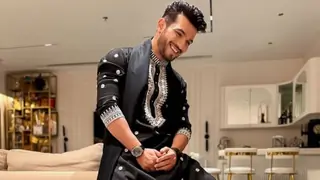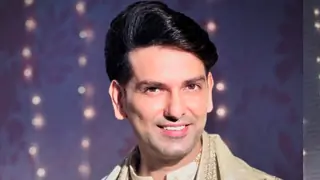look at Nikah ceremony, in all 3 occasions.. there was no Wali (guardian) who asks Zoya whether she accepts the groom or not.. in QH, it was Qazi himself asks, which is wrong.. its always Wali's job to ask the bride.. Qazi asks the groom, not the bride..
When Zoya offers namaaz for Dilshad's safety, her sitting posture was incorrect.. men sit like that, women don't..
What Zoya wore in Quran Khawni was wrong.. read the thread "Tehzeeb and Islam".. one member, Tanvi explained it beautifully..
@ Red.. so Dilshad is Rashid's EX wife.. fair enough! Now I fail to understand that why Rashid and Dilshad are still longing for each other when they already got divorced.. without practicing Halala, Dilshad can NOT go back to Rashid's life again.. and no muslim mid aged divorced couple still act like a lovesick puppy to their ex partner..
--
PS. The quote feature is messing up hence why I've had to write the post like this.
They also get marriage rites wrong in Hindu ceremonies in Indian shows -- a lot of it comes down the visuals rather than anything else. If something doesn't look right or hinders the speed of the narrative, then it will be omitted and this is a universal trope in films, television and literature because rather than informing the public, it's more about entertaining the public. Like I said in my first post, there are a lot of dramatic liberties in TV shows, which includes the posture for the prayer in QH, and the countless misrepresentations of Hindu rites and religious practices.
With regards to Zoya's outfit at the Quran Khawani, I think that was the point that show was trying to make -- that religion is in one's heart not in their outfit. There's no point in sitting in a Quran Khawani or any religious offering, if one is dressed appropriately but has malice and judgment in their heart, then is that prayer is not valid either. It was also to expound the hypocrisy of some cultural practices like the woman wearing the less-than-appropriate saree and being dressed to nines in jewellery for a religious gathering that requires humility. The idea that cultural origin of a dress defines modesty is being challenged here: that what Zoya was wearing was far more appropriate than the saree and the jewellery and make-up that the 'tehzeeb-yafta' women were wearing.
Re: Dilshaad and Rashid
You are applying religious standards to actions that are stemming from emotions. Take out of the equation that these two are Muslim; they are first and foremost human, which means they feel. They didn't get divorced because they hated each other or because they could no longer abide by one another but because Rashid was forced to make a choice. Dilshaad never stopped loving Rashid but she stayed away from him, as he stayed away from her, even though she remained his true love (I have yet to see evidence where he feels anything for Shireen that is in the same ball park as what he feels for Dilshaad).
In my experience, no amount of social diktats and religious codes have ever been able to take precedence over overwhelming human emotion. As you keep saying, it's not the religion that is at fault, but the people. People make mistakes and they often despite their understanding and initial acceptance of rules and moral codes. Also, I'd like to add that these two are lovesick puppies because their love never died and they were separated by Rashid's poor choices rather than any love lost between the two.
Furthermore, the story thus far has not suggested that Rashid and Dilshaad want to get remarried; just that there is a lot of hurt on both sides and Rashid is the one who wants to reconnect with Dilshaad, and while initially Dilshaad resisted, after finding out the truth (sort-of), she wants answers to the questions that she has every right to ask.
Re: Polygamy
Also, polygamy is legally allowed in India for Muslims because it is allowed in Islam. There are of course stipulations before you can marry your next wife, but the main stipulation is that you treat them equally in terms of time, money and affection, and that you have to have the expressed permission from your first wife.
So just because the religion dictates one thing, the
cultural practices are often quite different. I mean for all intents and purposes, Zoya shouldn't be interacting with Asad or being in the close proximity that she is with him, since he is non-mehram. That's the point that should be noted -- this is not a show about Islam, it's a show about a family that represents a faction of the Muslim culture in India. World of difference. If people genuinely interested will go do the research for themselves, or come to forums, where there are clearly enough people to point out the discrepancies.





























